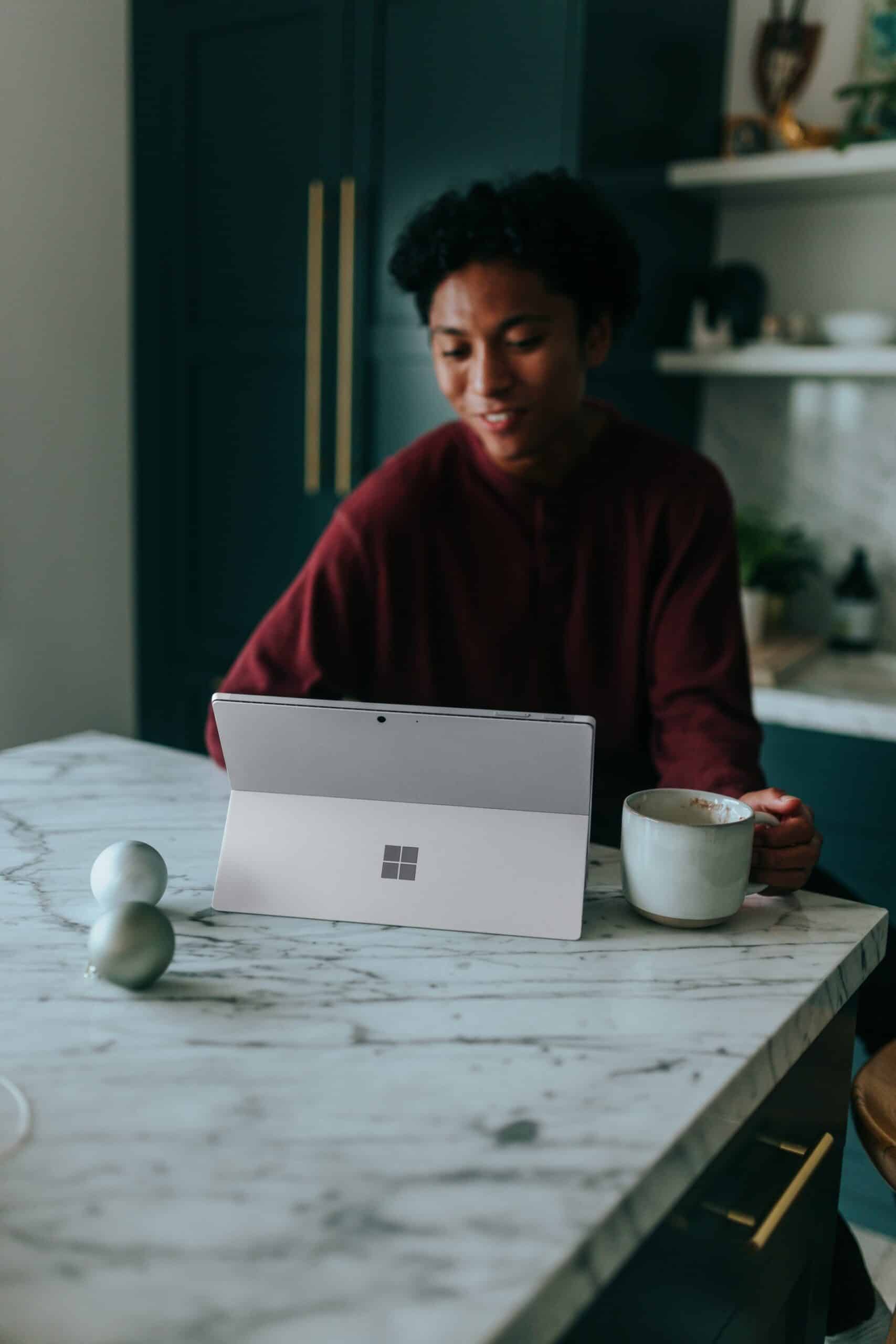Virtual immigration interviews might intimidate the person applying. If you wish to become a US citizen and you face a virtual immigration interview, you might feel nervous about the process as the day draws closer.
We’ll discuss what you can expect from one of these interviews in the following article. We’ll talk about New Jersey virtual immigration interviews specifically.
IMAGE: UNSPLASH
Remote Interviews
New Jersey virtual immigration interviews have become more common because of Covid-19. If you’re applying for citizenship or a green card, you don’t have to travel anywhere to take the interview, as long as you have a reliable Wi-Fi connection.
You should be in New Jersey if you’re interviewing with someone there. For instance, maybe you’re in Newark, but the interviewer is somewhere else in the Garden State.
The Questions Are the Same
You are obviously not in the same room as the person asking the questions, and that’s the main thing to know about the virtual interview vs. the in-person interview. The questions they ask you shouldn’t change, though.
You can ask for one of these interviews for a naturalization case. You can ask for one if you need a green card to work in the US, or you might need one for a condition removal case.
Condition removal means you’re going to work in the US full-time from now on. You’re hoping to get the government to remove your temporary status and work going forward as a lawful, permanent resident.
Audio Or Visual Problems
While you can expect the same questions, you might run into audio or video problems if you have to take a virtual immigration interview. You’ll want to have the examination somewhere you know you get excellent Wi-Fi connectivity.
If you don’t get very good Wi-Fi connectivity in your house or apartment, you might go somewhere else where it’s better. Maybe that’s a local library or somewhere quiet. You probably want to stay away from coffee shops and similar places that offer free Wi-Fi. If other people surround you, that noise can distract you.
Older Individuals
Older individuals sometimes struggle with the technology if they’re trying to get a green card or change their immigration status, and they don’t usually use a computer. You may try to use the headset or link up with the interviewer, but you’re unsure how to do that.
You might practice beforehand to make sure you know how to do it when the time comes. If you have a younger relative, you can ask them about the technology so they can show you all of its features.
Subtle Intangible Factors
There’s another issue besides technology that some individuals deal with, though, when they’re getting ready to engage in one of these interviews. Humans do well with one-on-one interaction because you can usually convey what you mean when you can look someone in the eyes and when they can see your facial expressions.
Some of that might come across if you’re on a video call with someone, but you may lose some of it because you’re not in the same room as the person to whom you’re speaking. They might not see your body language, such as your posture. They might misinterpret something you say or do because they can’t process the total package.
That’s a challenge you must get past as best you can. You can’t completely convey your sincerity or attitude via a video call sometimes, but you still have to try and get your point across.
What Can You Do To Get Around These Potential Problems?
This interview process matters a great deal. You have to go through with it to get that status change you want, and you must impress your sincerity on the person asking the questions.
We’ve talked about familiarizing yourself with the technology and finding somewhere with good Wi-Fi before you proceed with the interview. However, you can take an additional step and hire an immigration lawyer if you know you have that interview coming up.
Immigration lawyers can help you deal with the whole digital interview process. You can find one who speaks your native language if you’re not a native English speaker.
Maybe you speak only limited English, and the lawyer can help you understand the questions the interviewer asks. They can’t speak for you or take the interview for you, but they can be there to offer their encouragement and expertise during the process.
What Else Can An Immigration Lawyer Do For You?
Lawyers know immigration law if they study it extensively. They know how to object if a question the interviewer asks goes outside the boundaries of what the law and standard protocol allow. Unfair questions might derail your interview, but you don’t always know how to identify them.
Your legal counsel can also make the interviewer aware of sound or visual issues that you’re experiencing. They might set you up with a place to take the interview that has excellent Wi-Fi, but if you still have some problems, they can try to help you through that.
They can tell the questioner to stick to established protocol. They should not overstep their bounds if they know you have a lawyer sitting right there to advise you. In that respect, it’s much like your legal counsel objecting to a prosecuting attorney questioning you when you’re on the witness stand and the state has accused you of something.
The lawyer can also help explain any legal issues you’re likely to encounter before the interview or during it. They can tell you what documents you need to have and explain how to fill them out. They can explain abstract or unclear concepts having to do with the interview and the entire process.
How To Find The Right Attorney
If you want legal help because you have an immigration interview coming up, you can look around online for the right attorney to hire. You might ask your family members if they can recommend anyone. If you know someone who has gone through this process, they might have a law office for you to call.
You will want to look at online reviews to see what former clients say about this lawyer or law office. You can reach out to them and explain your situation and see what they say about it. Maybe they can’t take you on as a client because they’re too busy right now. If not, you’ll need to find someone else who can help you.
You will probably want to locate an attorney who’s relatively close to you. For instance, if you’re in Newark, you’ll need to locate a lawyer in the same city, or at least fairly close to it. If you have to drive for multiple hours to get to that lawyer’s office, you should probably go with someone else.
Other Considerations
Maybe you don’t have a ton of money that you can use to pay the lawyer. You will have to talk to them about payment when you hire them. You can occasionally find a lawyer who will do pro bono work, but, for the most part, you have to pay for the services we’re describing.
You can’t use something like a contingency payment plan if you’re hiring an immigration lawyer. You’ll have to pay their hourly fee if you hire them. If you can’t afford them, you’ll need to go with someone else or handle the whole process on your own.
Maybe you can get your relatives to help you come up with the money to pay the lawyer. You might need their expertise if you have any hope of getting past the interview and getting the government to change your status.
Going Into The Interview
Going into the interview, make sure to practice using the technology and pick out a place where you can sit quietly. Make sure you select a locale with good Wi-Fi, though it’s hard to predict how well it will perform sometimes.
Make sure you have filed all the appropriate paperwork and have any additional forms with you for the actual interview that your lawyer tells you that you need. If you hired a lawyer, you might run through some questions with them that you know the interviewer will ask. You can practice giving your answers so you’ll sound natural and convincing with your responses.
Practice your English if it’s not your first language. Make sure you get lots of rest before the interview day. The chances are that you’ll get through it fine, and you’ll soon have the status that you want.
If anything goes wrong, know that you can try again in most instances. If something like a faulty Wi-Fi connection messed up your chances, that’s not your fault, and you should get another opportunity sooner rather than later.
The right lawyer can help you through this process, so at least consider getting one if you can. Remember to find one who specializes in this area to give yourself the best opportunity.
IMAGE: UNSPLASH
If you are interested in even more lifestyle-related articles and information from us here at Bit Rebels, then we have a lot to choose from.


COMMENTS